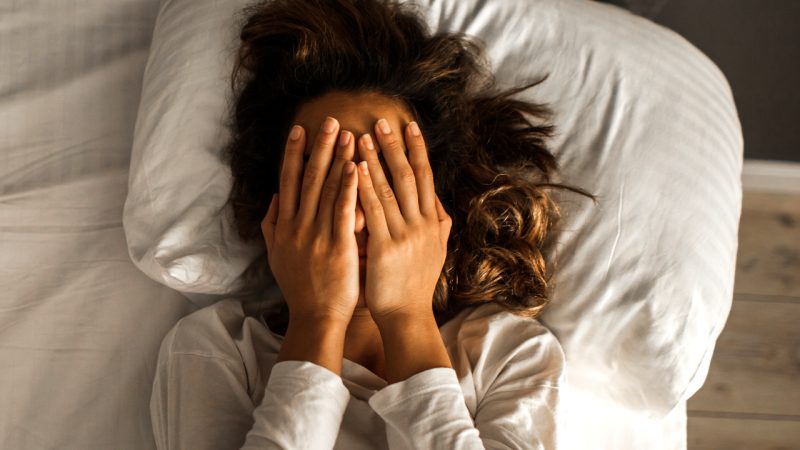With the fast pace of modern life, getting eight hours of sleep each night may seem impossible.
Yet, with a few small tweaks to your routine, it is possible to get better quality shut-eye and snooze for longer.
To mark World Sleep Day on Friday, 'Unwind' podcast host Poppy Jamie has offered up her top tips for getting more sleep.
Don't eat too late
While busy days often mean late meals, eating at night may impact your ability to get to bed.
"Try to stop eating three hours before bed," she advised. "This helps level out your blood sugar levels before you sleep helping you to stay asleep. When we eat a lot of sugar or carbs just before we sleep, we are vulnerable to wake-ups due to blood sugar dips."
Avoid screens
Choose what you watch or listen to carefully before bed.
"Netflix is not your friend if you want to get to bed earlier because it's designed to hook you into the next episode before your brain decides to turn off the TV. Step away from addictive content or high adrenalin crime dramas that hype you up and give you bad dreams and instead choose to embrace content that relaxes your nervous system," said Poppy.
Consider taking a supplement
If you are really struggling to dose off, speak to a health professional about magnesium supplements.
"Magnesium is a powerful muscle relaxant, and if you are someone that works out a lot, this is going to be even more helpful for you," the Happy Not Perfect author continued.
Check the temperature of your bedroom
Along with comfortable pillows and bedding, having a cool room can aid with sleep.
"It's a good idea to take a warm shower or bath before bed and ensure the bedroom is relatively cool. This helps our body temperature to lower, signalling to our brain that it's time for sleep! Heat loss is associated with an increase in the key sleep-promoting hormone, melatonin, and also improves blood circulation enhancing that dreamy feeling of relaxation," she noted.
Journal before bed
If you are worried about something or have had a stressful day, try writing it all down before nodding off.
"This helps the brain to process the events, and in doing so, helps you to sleep better because you activate the computer side of the brain, which calms the emotional centre. The brain is also required to do less processing by itself during the early sleep process," shared Poppy. "Studies have even proved that journaling reduced bedtime worry and stress, increased sleep time, and improved sleep quality."

Belly breathe
It's a simple tip but a powerful one.
"When we focus on taking five to 10 deep belly breaths before we sleep, we help remind the body and mind that we are safe and it's O.K. to relax and sleep," she added. "Breathing activates the parasympathetic (the rest and relax nervous system) which is essential for us to sleep well."
© Cover Media





